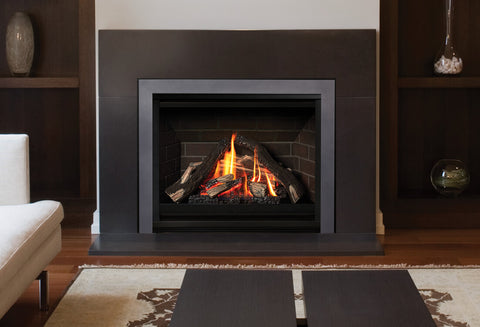When choosing between a gas fireplace and an electric fireplace for your home, one of the main considerations to keep in mind are the heat output and efficiency your unique home needs.
Gas Fireplaces:
Modern gas fireplaces always have a higher BTU rating than electric fireplaces. For those who don't know, BTUs (British Thermal Units) measure the heat output of anything that generates heat. Gas fireplaces will generate between 20,000 and 40,000 BTUs per hour. With this higher output of heat, your gas fireplace will be able to burn more steadily and release heat more consistently for longer periods of time. A gas fireplace is definitely the choice for larger homes or living spaces that need a quick heat solution.
Electric Fireplaces:
Electric fireplaces have a much lower BTU rating, at about 3,000 to 10,000 per hour. With this lower heat output, heating a house or a large room will be challenging as it will take much longer to heat to dissipate to the further corners of the living space. Although electric fireplaces have a lower BTU rating, they convert nearly all of the input energy into heat (if you turn the flames off and keep the heat function on), which results in a higher energy efficiency rating when you're trying to heat small spaces.
Don't want any heat at all? Several electric fireplaces allow you to turn the heat off, so you can just enjoy the beauty of the realistic fire.
So, are gas fireplaces or or electric fireplaces better when considering the heat output and energy efficiency? We say gas fireplaces. Yes, electric fireplaces can be efficient at heating smaller spaces, but a gas fireplace would heat that same small space much faster. Valor gas fireplaces allow you to adjust the heat with a remote control for constant, and even warmth without turning the fire on and off. Meanwhile, gas fireplaces can heat up large spaces efficiently, whereas electric fireplaces cannot - especially during our extremely cold Canadian winters.






















